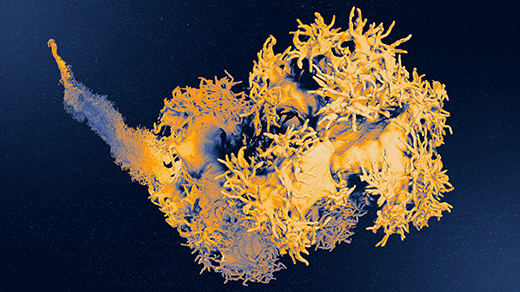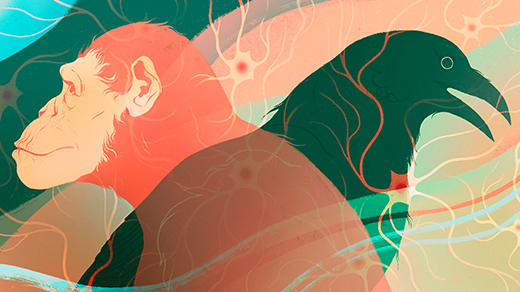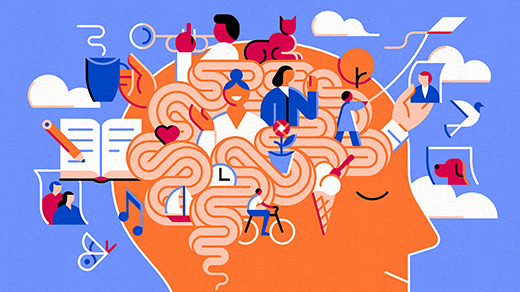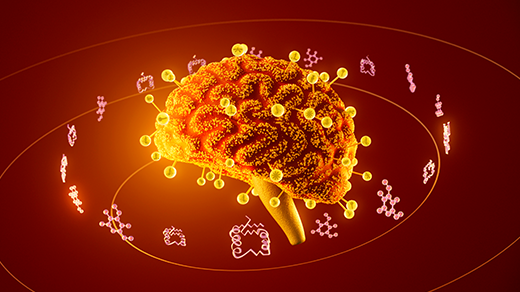What's up in
Neurons
Latest Articles
Touch, Our Most Complex Sense, Is a Landscape of Cellular Sensors
Every soft caress of wind, searing burn and seismic rumble is detected by our skin’s tangle of touch sensors. David Ginty has spent his career cataloging the neurons beneath everyday sensations.
Intelligence Evolved at Least Twice in Vertebrate Animals
Complex neural pathways likely arose independently in birds and mammals, suggesting that vertebrates evolved intelligence multiple times.
Concept Cells Help Your Brain Abstract Information and Build Memories
Individual cells in the brain light up for specific ideas. These concept neurons, once known as “Jennifer Aniston cells,” help us think, imagine and remember episodes from our lives.
The Year in Biology
Biologists used artificial intelligence to make discoveries about molecules and the brain, and overturned long-held assumptions about the immune system and RNA.
How the Human Brain Contends With the Strangeness of Zero
Zero, which was invented late in history, is special among numbers. New studies are uncovering how the brain creates something out of nothing.
The Brainstem Fine-Tunes Inflammation Throughout the Body
The evolutionarily ancient part of the brain that controls breathing and heart rate also regulates the immune system — a discovery about the brain-body axis made by experts on taste.
Can Psychedelics Improve Mental Health?
Research suggests that psychedelic drugs can reopen critical periods of brain development to create opportunities for re-learning and psychological healing. In this episode, co-host Janna Levin speaks with Gül Dölen, a neuroscientist studying the therapeutic potential of psychedelic substances.
What Happens in the Brain to Cause Depression?
Drugs that target the neurotransmitter serotonin have long been prescribed to treat depression. Now the spotlight is turning to other aspects of brain chemistry. In this episode, the neuropharmacologist John Krystal shares findings that are overturning our understanding of depression.
Electric ‘Ripples’ in the Resting Brain Tag Memories for Storage
New experiments reveal how the brain chooses which memories to save and add credence to advice about the importance of rest.








